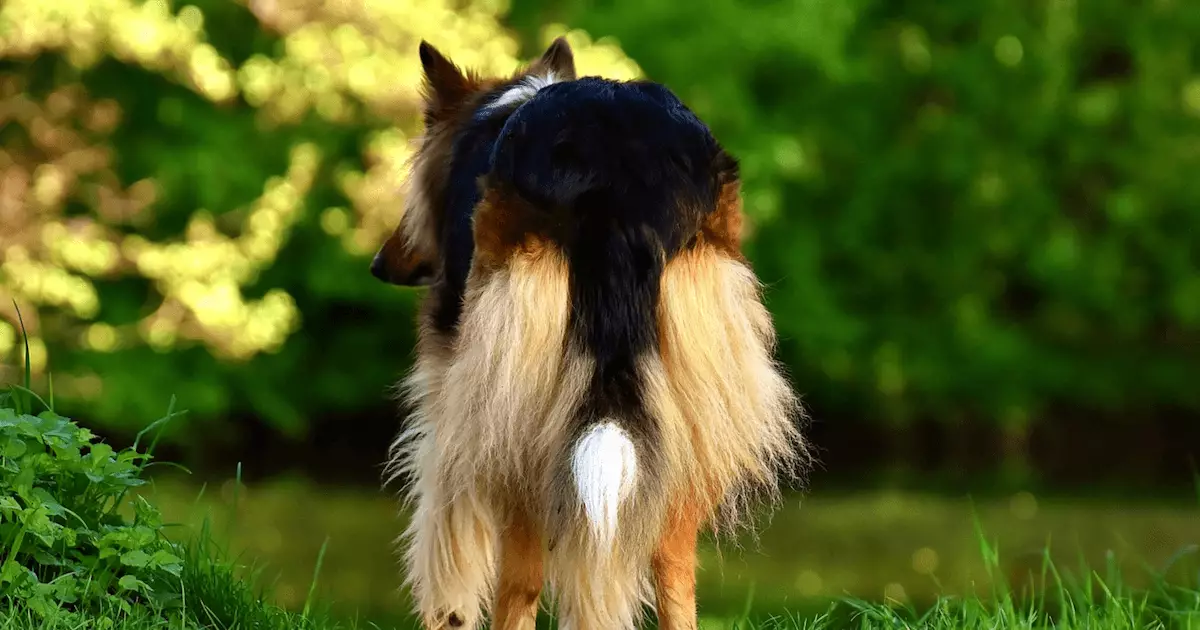Owning a long-haired dog can be an unparalleled joy. With their soft, flowing fur and affectionate nature, these enchanting pups often become an integral part of the family. They offer limitless snuggle opportunities and a unique aesthetic appeal that close-cropped canines simply cannot match. However, while they charm us with their beauty and warmth, they also come with their fair share of grooming challenges that require vigilance and care. Understanding how to navigate these demands not only enhances the bond we share with our long-haired friends but also ensures their health and happiness.
The Dreaded “Poop Butt” and Its Causes
Every proud parent of a long-haired dog has likely faced the unpleasant issue commonly referred to as “poop butt.” This situation arises when feces become entangled in a dog’s fur, creating a rather unfortunate hygiene problem. The phenomenon—known in veterinary circles as pseudocoprostasis—can progress quickly if not addressed. Soft, loose stools are particularly prone to becoming entangled in hair, and as such, a well-balanced diet is vital in maintaining healthy bowel movements. A controlled diet rich in fiber, along with potential probiotics, can play a central role in achieving optimum stool consistency, ensuring that your dog’s bottom remains clean and tidy.
The Importance of Regular Grooming
Grooming should be a priority when it comes to caring for long-haired breeds. It not only enhances their beauty but is also pivotal for hygiene. The American Kennel Club advises a grooming routine that often includes trips to professionals, especially for intricate trimming tasks around sensitive areas like the anus and underside. Going to a groomer isn’t just about aesthetics; a comprehensive grooming session can help prevent the fabled poop butt and other complications. By maintaining these trims, not only do you prevent fecal matter from clinging to fur, but you also decrease the risks of infections caused by trapped moisture and bacteria in the fur.
While professional grooming can take care of major trims, home care remains equally important. Regular brushing, bathing, and spot-cleaning should be part of every long-haired dog owner’s routine. Owners should view grooming as a loving act that deepens the bond with their furry companion, while it also protects their health.
Signs of Trouble: When to Seek Veterinary Help
Should your dog struggle with persistent issues like soft stools or chronic constipation, it’s critical to consult a veterinarian. The risks involved with untreated issues relating to matted fecal matter can escalate quickly. An obstruction can lead to serious complications such as vomiting or even a painful rash where matted fur meets sensitive skin. By seeking professional help, you can work together with your vet to establish a tailored, nutritious diet that addresses any underlying health issues.
A vet’s guidance is invaluable, as they can conduct necessary tests to identify potential infections or chronic conditions. Thus, proactively managing your dog’s diet can contribute significantly to their overall well-being and hygiene.
The Art of Quick Cleanup
While prevention is key, accidents happen. If cleaning up after your long-haired dog, timing is crucial. Immediate attention to a soiled area can spare you and your dog from a more significant hassle later on. Investing in high-quality grooming wipes can be a game-changer. These products are designed to be gentle on your dog’s skin while effectively deodorizing and cleaning the fur. Waterless shampoos offer another practical solution for quick touch-ups. They eliminate bacteria and odor, providing a clean and refreshing alternative to frequent baths, which can lead to dry skin and lackluster fur.
Within the nexus of grooming, hygiene, and dietary management lies the essence of responsible long-haired dog ownership. Adopting a proactive approach not only preserves the beauty of your furry friend but also protects their health and saves you from the sometimes overwhelming mess associated with long, luxurious coats.
Ultimately, by understanding the specific needs of your long-haired dog, you not only enhance their quality of life but also enrich your own experiences as a loving, conscientious pet parent.

